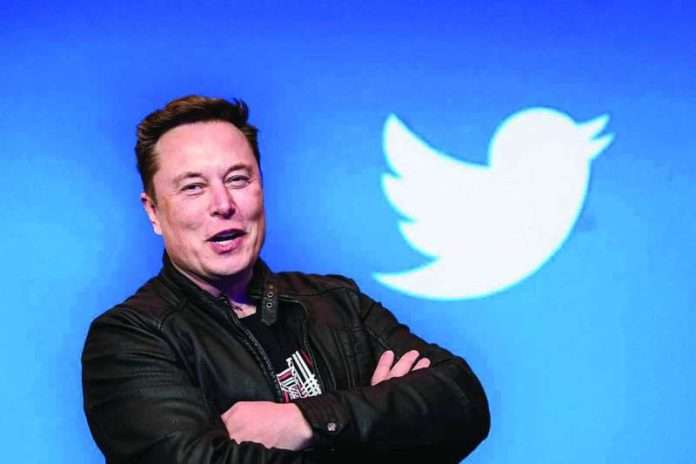The head of Twitter, Elon Musk, admitted to making “several mistakes” since buying the network for $44 billion six months ago, and announced his intention on the twentieth of this month to withdraw the authentication marks from accounts whose owners do not pay money for this feature.
In a live interview with the BBC, which he agreed to invite at the last minute out of “spontaneity,” Musk appeared to implicitly admit that one of those mistakes was the decision to classify the British Broadcasting Corporation over the network as a “state-funded media,” reports Al-Rai daily quoting AFP.
He explained that he would change the classification on the BBC’s Twitter account, after the authority objected. “We want this classification to be as reliable and accurate as possible,” Musk said. “We will amend the designation to be publicly funded.”
Funding for the BBC is mainly linked to an annual license fee set by the government but paid by individual households.
For years, Musk has shown such disdain for the news media that he has installed an automatic response to messages received on the email for media communication with Twitter, which includes an emoji of a pile of poop.
In his interview with the BBC earlier yesterday, Musk also talked about Twitter’s controversial move to strip The New York Times of the blue mark of authentication after the newspaper refused to pay to keep it.
Starting April 20, any old accounts with a verification mark issued during the previous management period on Twitter will have to pay to subscribe to the Twitter Blue service, or their verification mark will be withdrawn.
One reason, Musk said, is that he doesn’t want to limit Twitter to “a certain category of journalists” who shape news coverage.
He added, “I hope that this will contribute to making the narrative in the hands of public opinion, rather than confining it to the media,” and that the platform “will treat everyone equally.”
Musk pointed out that he has been living in a “stressful situation for months,” after assuming the presidency of the network at the end of October.
“Were there many mistakes along the way?” he added. Of course, but everything is fine, the results are good. I feel we are heading to a good place.”
He said the network was barely achieving a “break-even point” in revenue as advertisers returned to its pages.

















